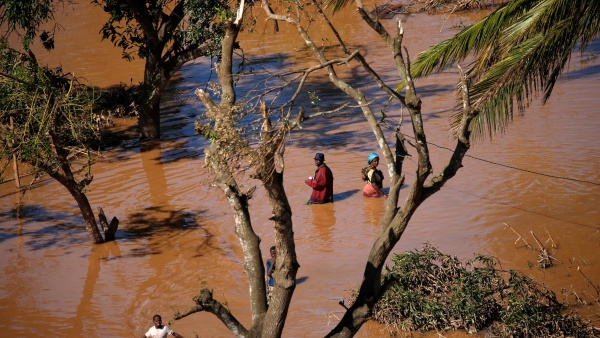 Press Encounter by the Secretary-General Antonio Guterres on the devastation caused by Cyclone Idai in Monzambique, Africa at the UN Headquarters in New York, on 26 March 2019. The head of the World Food Programme is traveling to Mozambique as we speak,” Guterres added. (Photo by Selcuk Acar/NurPhoto via Getty Images)
Press Encounter by the Secretary-General Antonio Guterres on the devastation caused by Cyclone Idai in Monzambique, Africa at the UN Headquarters in New York, on 26 March 2019. The head of the World Food Programme is traveling to Mozambique as we speak,” Guterres added. (Photo by Selcuk Acar/NurPhoto via Getty Images)
UN Secretary-General Antonio Guterres on Thursday said funds pledged to help Mozambique recover the devastation of two successive cyclones “is far below what is needed”.
International donors last month pledged $1.2bn after the poor southern African country was battered by two powerful cyclones within weeks of each other.
But the UN estimated that $3.2bn is needed overall. Earlier, about $273m had been raised for the emergency response.
Guterres, who is touring Mozambique, said: “the funds mobilised both for emergency and for reconstruction is far below what is needed”.
Cyclone Idai which struck in March, was the strongest storm on record to hit Mozambique.
It swept away homes, roads and bridges, leaving around 700 people dead and displaced 1.5 million others.
Six weeks later, Cyclone Kenneth hit the northern parts of the country, killing at least 41 people.
“The two severe cyclones that struck Mozambique are a consequence of global warming,” Guterres said, adding Mozambique was victim of climate change yet “it contributes nothing to global warming”.
“The international community has a moral responsibility to show solidarity with Mozambique,” he said after talks with President Filipe Nyusi in Maputo.
On Friday Guterres is due to fly to Beira city which was the hardest hit by cyclone Idai. There he will visit displaced people housed in temporary shelters and meet the local authorities.


